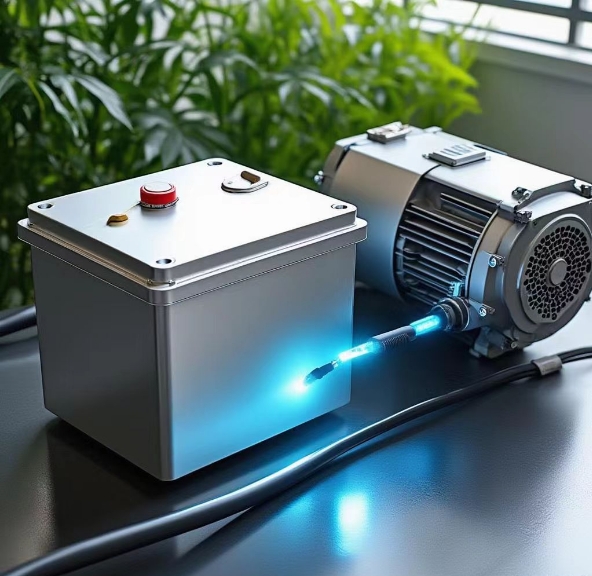Backup power option in case of power outage?
A reliable backup power system ensures uninterrupted electricity during power outages, keeping your home safe and functional. Both battery energy storage systems and generators offer effective solutions, but their suitability depends on your specific needs and preferences.
Battery backup vs. generator: How do they compare?

Battery energy storage systems and generators differ significantly in operation, maintenance, and environmental impact. Batteries provide clean energy, operate silently, and require minimal upkeep. Generators, while effective for long outages, rely on fuel and produce noise and emissions, making them less eco-friendly.
Read on to explore the pros and cons of each option in detail.
Can Smart Grid Storage Handle Long Winters and Energy Demands?
Yes. Today’s smart grid storage and advanced battery technologies can effectively support high winter energy needs. Systems with thermal insulation, lithium battery packs, and remote energy management ensure stable performance—even during cold, low-sunlight months—while improving energy independence and reducing overall power costs for businesses and municipalities.
Pricing of Batteries and Generators
The cost of backup power solutions varies widely depending on the technology and capacity.
Batteries:
Modern battery systems, such as those using lithium-ion technology, typically have higher upfront costs. A standard residential battery energy storage system can range from $10,000 to $20,000, including installation. However, government incentives for clean energy adoption may reduce costs significantly. Over time, batteries can offer savings through peak shaving and integration with renewable energy sources like solar panels.
Generators:
Generators are generally more affordable upfront. Portable models start at around $500, while whole-home systems can cost between $3,000 and $10,000, excluding fuel expenses. Fuel costs, such as diesel, propane, or gasoline, add up over time, particularly during frequent outages.
Verdict:
Although batteries are costlier initially, their long-term benefits, such as savings on energy bills and reduced reliance on fossil fuels, often outweigh the initial expense. Generators, while cheaper upfront, incur higher operating costs and lack the environmental benefits of batteries.
Installation of Batteries and Generators
The ease and complexity of installing backup power systems vary between batteries and generators.
Batteries:
Installing a battery backup system often requires professional assistance. It involves integrating the battery with the home’s electrical system and, in many cases, renewable energy sources like solar panels. While this process can take several days, the result is a seamless and compact setup. Additionally, batteries can be wall-mounted or rack-mounted, saving valuable space.
Generators:
Generators are relatively easier to install, especially portable units, which require minimal setup. Whole-house generators, however, demand significant preparation, including connection to the fuel source and transfer switches. These installations can take up considerable outdoor space and require compliance with local codes.
Verdict:
Batteries offer a more space-efficient and aesthetically pleasing solution, while generators are often easier to install but may disrupt the visual appeal of your home.
Maintenance of Batteries and Generators
Maintenance requirements significantly influence the long-term convenience of backup power systems.
Batteries:
Battery energy storage systems require minimal maintenance. Modern lithium-ion systems are designed for years of trouble-free operation. They are self-regulating, monitor their performance, and provide remote diagnostics. Occasional software updates and inspections are sufficient to ensure optimal performance.
Generators:
Generators, on the other hand, demand regular maintenance. Oil changes, fuel refills, and inspections are necessary to keep them running efficiently. Furthermore, fuel storage can pose safety risks and requires proper handling. Generators also tend to degrade faster due to wear and tear from mechanical components.
Verdict:
Batteries are a low-maintenance option, while generators require ongoing attention, making them less convenient for long-term use.
Expected Lifespan and Warranty of Batteries and Generators
The longevity of backup power systems directly impacts their value and reliability.
Batteries:
Lithium-ion batteries typically have a lifespan of 10 to 20 years, with up to 6,000 charge cycles. Products like Hicorenergy’s I-Box 48100R offer warranties of 10 years, ensuring long-term reliability. Over time, they retain significant capacity, providing consistent power even in later years.
Generators:
Generators have a shorter lifespan, typically 10 to 15 years with regular maintenance. Their durability depends on usage frequency, fuel type, and maintenance quality. Warranties for generators are often limited to 3 to 5 years, reflecting their shorter expected lifespan.
Verdict:
Batteries excel in longevity and warranty coverage, making them a superior long-term investment compared to generators.
Which Backup Solution is Right for You?
Choosing between batteries and generators depends on your priorities, budget, and environmental considerations.
Consider Batteries if You Value:
- Clean energy and sustainability.
- Silent, low-maintenance operation.
- Seamless integration with solar energy systems.
- Long-term cost savings and independence from fossil fuels.
Opt for Generators if You Need:
- Immediate affordability.
- Extended runtime during prolonged outages.
- A simple, fuel-based solution for backup power.
Hicorenergy’s advanced battery systems, like the I-Box 48100R, offer a compelling alternative for those seeking eco-friendly, reliable, and efficient power backup. Their modular design, scalability, and innovative features make them ideal for residential use.
Conclusion
Both batteries and generators provide viable solutions for backup power, but batteries offer unmatched benefits in sustainability, efficiency, and longevity. For a reliable, eco-friendly option, consider battery energy storage systems like those from Hicorenergy.